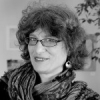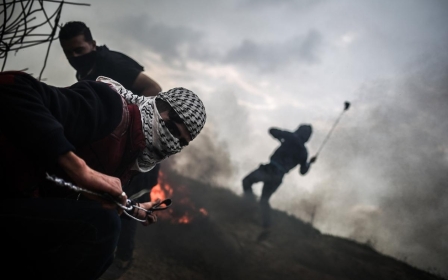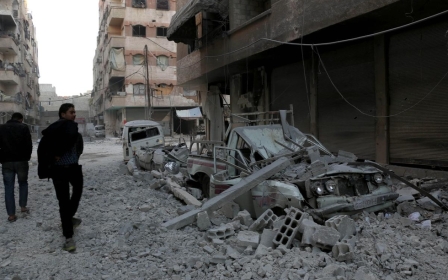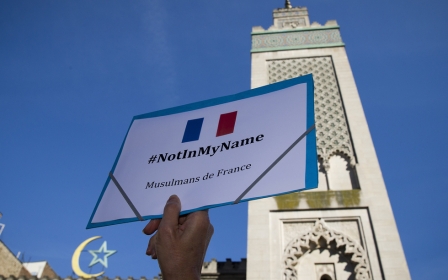False assumptions on Israel and Islamic State
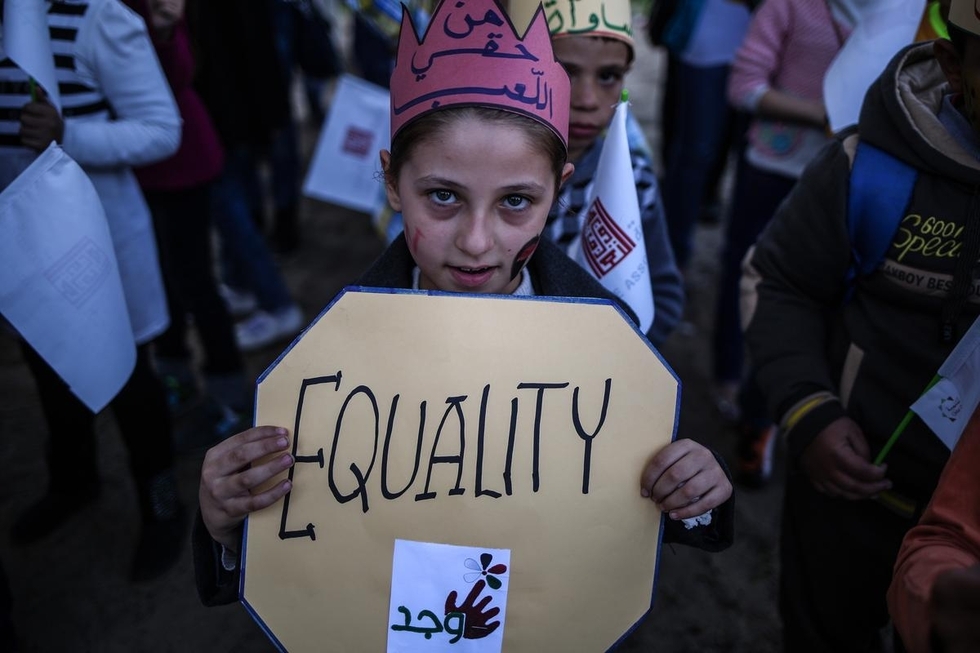
Years ago, when I taught “Intro to Women’s Studies,” one of my assignments was to have students wear, for two complete days, from morning to bedtime, a button that read “Hello, My name is XX. Don’t assume I’m straight.” The students had to turn in a two-page report on their thoughts and feelings as they went about their daily activities with that button on.
This was at a small college in a very conservative town, the students would wake up in their dorm room, have breakfast with fellow students, transition from one class to another, participate in their extra-curricular activities, go to the library, maybe the bookstore store or the convenience store, and so on. Wearing the button was optional. Turning in the report was not, so if students chose, for any reason, not to wear the button, they would also have to write why they decided against it. Was it fear of what others would think? Fear of what others would do? Their own homophobia? What spaces did they feel were “safe,” and which ones were not?
The point of the exercise was to reveal the pervasiveness of assumptions amongst all communities, foreground “safety,” or the lack thereof, for some individuals, and to expose the fear that accompanies being a member of a minority group in a potentially hostile environment. When the students turned in their assignments, we would discuss what daily life would be like for someone with a trait deemed “undesirable” who could not put on and take off that trait as they felt appropriate.
This was almost 25 years ago, and things have improved significantly for gays in some major US cities. But fearing for one’s life, just because of one’s birth circumstances, or one’s religious beliefs, is still very real for many just about anywhere in the Global North. Brown people with Middle Eastern features, women wearing hijab, do not feel safe today, are not safe today, in the wake of terrorist attacks perpetrated by Muslim fundamentalists. Politicians are openly calling for discrimination, and presidential candidates run on platforms that fan the fires of an already-virulent Islamophobia. Hate crimes are occurring all-too frequently, Muslim places of worship are burned down, and identifiably-Muslim people have been shot dead by neighbors over parking disputes, or pushed onto train tracks in railway stations.
Two initiatives were recently proposed in response to the virulent Islamophobia taking on the Global North. One is a solidarity campaign, where Caucasian people offer to accompany Muslims around, for safety. The other, initiated by Muslims themselves, is a social media campaign that has individual Muslims saying “I'm a Muslim, but I’m not a terrorist.”
I am Muslim, but...
I believe the solidarity campaign is, sadly, a necessary one. But my impulse is to absolutely reject the second one. A part of me wants to say "No! You don't have to explain that even though you are Muslim, you are not a terrorist. Because by doing so, you are validating the assumption that Muslims are terrorists …”
Yet I am hesitant to do so because I am not Muslim myself and therefore cannot know, experientially, what it feels like to be viewed as a terrorist because of one's religion. That said, I am Palestinian, and I have always refused to say "I'm Palestinian, but I'm no terrorist." I have always been unapologetically Palestinian. I have defiantly answered questions such as “Where is the Palestinian Gandhi?” with “We have thousands of Gandhis, they are either dead, assassinated, or behind bars in Israeli jails. Now, you tell me, where is the Israeli Gandhi?”
Shouldn't it be the same for Muslims, shouldn’t they also be able to be unapologetically Muslim, especially when those claiming to speak for Islam are understood the world over to be the most extremist of extremists? Maybe one act of solidarity in these awful times would consist of non-Muslims saying they know full well that the terrorists do not represent Islam? If millions of non-Muslims proclaim “I know Islamic State does not represent Islam,” then Muslims themselves wouldn’t have to distance themselves from those criminals? As Islamophobia reaches dangerous levels, the burden would be on those of us who profess solidarity with a beleaguered, battered community, rather than on its own members.
Not in my name
Assumptions have plagued our communities for too long. Some are manufactured generalizations, intended to benefit the perpetrators of evil acts. Thus the assumption that Israel and Zionism represent all Jews. I, for one, like many activists for Palestine, am very grateful for Jews who speak out, who denounce Zionism, occupation, apartheid, and who say: “Not in My Name.” As such, one could say Muslims should also proclaim loud and clear that the crimes committed by IS do not represent Islam, do not speak for them.
But are the two really similar? I believe not. Israel has world recognition, and the material, financial, and diplomatic backing of the US and EU. Much of pro-justice activism aims precisely at stripping Israel of this unwarranted political immunity. It is precisely because the mainstream, dominant discourse assumes that Israel is “normal,” that its claim to represent world Jewry is legitimate, that it becomes necessary for activists to denounce Israel’s normalcy.
We are trying to show the world that Israel is not the vibrant democracy it claims to be, but rather a settler-colonial state that privileges some over others, engaging in extremely oppressive practices over the latter, a dispossessed disenfranchised indigenous people whose human rights Israel violates.
The situation is completely different with Islam globally, since the mainstream, dominant discourse does not recognize IS as a “legitimate group,” a representative of the Muslim umma. Yet by saying “I am Muslim, but I’m no terrorist,” one is implicitly granting the IS claim to be a “Muslim” group the validity that it seeks but does not currently enjoy. There is thus an essential difference between Jews denouncing Zionism, and Muslims denouncing IS.
But the bottom line is that unwarranted assumptions will continue to prevail so long as we hold them, if only by default, for lack of critical thinking. We cannot afford this intellectual laziness. Its consequences are lethal for people already suffering under the harshest of circumstances. As we mourn the victims of the IS attacks in Egypt’s Sinai, Beirut, Paris and other war-battered parts of the world, it is absolutely critical for us to distinguish between Islam, and ISI.
We certainly do so when white Christians invoke their religion when they commit hate-crimes. And progressives reject the notion that Israel, a racist settler-colonial state, represents Judaism. We should extend this understanding to Islam too. Otherwise, we are playing into the hands of the real terrorist group, rather than the people it claims to represent.
- Nada Elia serves on the steering collective of the US Campaign for the Academic and Cultural Boycott of Israel.
The views expressed in this article belong to the author and do not necessarily reflect the editorial policy of Middle East Eye.
Photo: A Palestinian girl holds a banner in Gaza City on 22 November, 2015 (AA).
New MEE newsletter: Jerusalem Dispatch
Sign up to get the latest insights and analysis on Israel-Palestine, alongside Turkey Unpacked and other MEE newsletters
Middle East Eye delivers independent and unrivalled coverage and analysis of the Middle East, North Africa and beyond. To learn more about republishing this content and the associated fees, please fill out this form. More about MEE can be found here.


